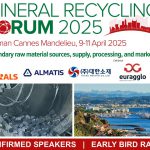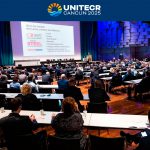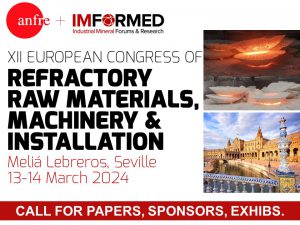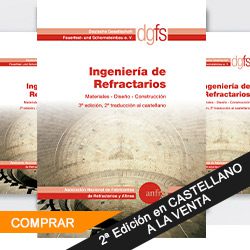Orden SND/340/2020, de 12 de abril, por la que se suspenden determinadas actividades relacionadas con obras de Intervención en edificios existentes en las que exista riesgo de contagio por el COVID-19 para personas no Relacionadas con dicha actividad.
Debido a la rapidez en la evolución de la situación de emergencia de salud pública ocasionada por el COVID-19, a escala nacional e internacional, el Gobierno, al amparo de lo dispuesto en el artículo 4, apartados b) y d), de la Ley Orgánica 4/1981, de 1 de junio, de los estados de alarma, excepción y sitio, declaró el estado de alarma en todo el territorio nacional con el fin de afrontar la crisis sanitaria, mediante Real Decreto 463/2020, de 14 de marzo. Debido a que la citada situación de emergencia sanitaria continúa hasta la fecha de hoy, el Real Decreto 487/2020, de 10 de abril, ha prorrogado nuevamente el estado de alarma hasta las 00:00 horas del día 26 de abril de 2020.
El artículo 4.2.d) del citado Real Decreto 463/2020, de 14 de marzo, determina que, para el ejercicio de las funciones previstas en el mismo y bajo la superior dirección del Presidente del Gobierno, el Ministro de Sanidad tendrá la condición de autoridad competente delegada, tanto en su propia área de responsabilidad como en las demás áreas que no recaigan en el ámbito específico de competencias de los demás Ministros designados como autoridad competente delegada a los efectos de este real decreto.
En concreto, de acuerdo con lo establecido en el artículo 4.3 del Real Decreto 463/2020, de 14 de marzo, el Ministro de Sanidad queda habilitado para dictar las órdenes, resoluciones, disposiciones e instrucciones interpretativas que, dentro de su ámbito de actuación como autoridad delegada, sean necesarias para garantizar la prestación de todos los servicios, ordinarios o extraordinarios, en orden a la protección de personas, bienes y lugares, mediante la adopción de cualquiera de las medidas previstas en el artículo once de la Ley Orgánica 4/1981, de 1 de junio, de los estados de alarma, excepción y sitio.
En este contexto, la concentración de personas en edificios en los que se están desarrollando determinadas obras de intervención en edificios existentes, en los que los trabajadores de la obra deben compartir determinados espacios comunes, con residentes u otros usuarios, implica un incremento del riesgo de contagio por COVID-19, resultando necesario, para garantizar la contención de la pandemia, proceder a suspender la ejecución de determinadas obras.
El objetivo para el establecimiento de la suspensión de estas actividades es evitar el riesgo de propagación y contagio del COVID-19 en un contexto de necesaria prudencia. La limitación para la actividad alcanza a toda clase de obra que suponga la intervención en un edificio ya existente, independientemente de su alcance, así como la circulación de sus trabajadores o materiales, que no sea posible independizar por completo de los espacios en los que se encuentren, temporal o permanentemente, aquellas otras personas. Dicha restricción no alcanzará a aquellas obras en las que no se produzca dicha interferencia y las obras a realizar puedan ser sectorizadas o separadas dentro del inmueble al que afecten, así como a aquellas que tengan por finalidad realizar reparaciones urgentes de instalaciones, averías o tareas de vigilancia en el propio inmueble.
Esta orden mantendrá su vigencia hasta la finalización del periodo de estado de alarma y sus prórrogas, o hasta que existan circunstancias que justifiquen la aprobación de una nueva orden que modifique los términos de la presente.
En su virtud, y conforme a la habilitación contenida en el artículo 4 del Real Decreto 463/2020, de 14 de marzo, dispongo:
Artículo único. Medidas excepcionales en materia de obras de intervención en edificios existentes.
1. Se establece la suspensión de toda clase de obra que suponga una intervención en edificios existentes, en los supuestos en los que en el inmueble en el que deban ejecutarse se hallen personas no relacionadas con la actividad de ejecución de la obra, y que, debido a su ubicación permanente o temporal, o a necesidades de circulación, y por causa de residencia, trabajo u otras, puedan tener interferencia con la actividad de ejecución de la obra, o con el movimiento de trabajadores o traslado de materiales.
2. Se exceptúan de esta suspensión las obras referidas en el apartado anterior en las que, por circunstancias de sectorización del inmueble, no se produzca interferencia alguna con las personas no relacionadas con la actividad de la obra.
3. Asimismo, quedan también exceptuados los trabajos y obras puntuales que se realicen en los inmuebles con la finalidad de realizar reparaciones urgentes de instalaciones y averías, así como las tareas de vigilancia.
Disposición final única. Entrada en vigor.
Esta orden entrará en vigor el día de su publicación en el «Boletín Oficial del Estado» y mantendrá sus efectos hasta la finalización de la vigencia del estado de alarma y sus posibles prórrogas, o hasta que existan circunstancias de salud pública que justifiquen una nueva orden modificando los términos de la presente.
Madrid, 12 de abril de 2020.–El Ministro de Sanidad, Salvador Illa Roca.








